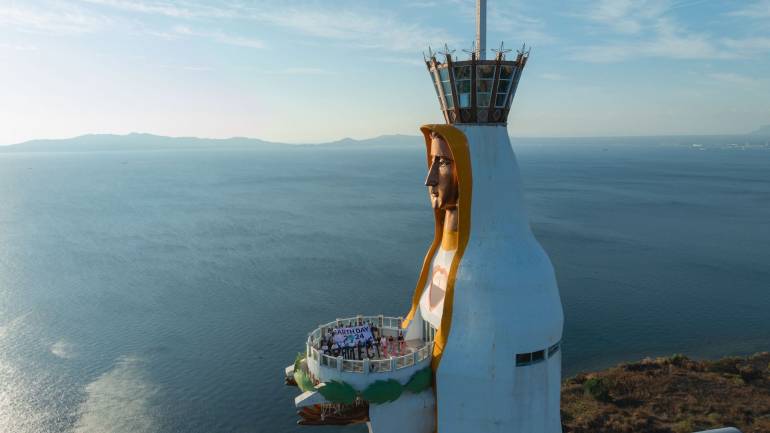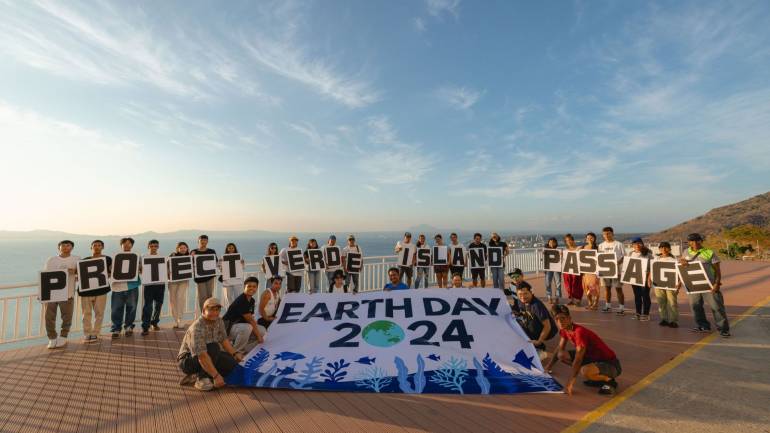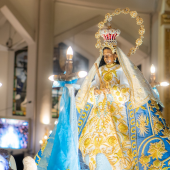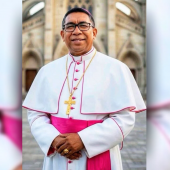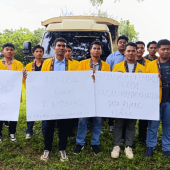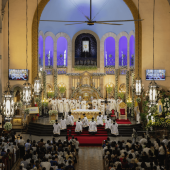Philippines: Appeal to protect the Verde Island Passage at world’s tallest Virgin Mary statue
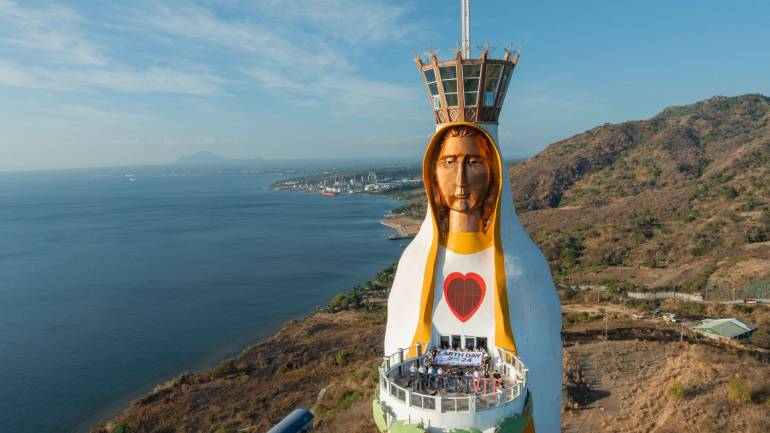
A coalition of advocates, fishermen, church groups, and communities, in time for Earth Day on April 22, again called for the protection of the Verde Island Passage (VIP) with ceremonies at the highest statue of the Virgin Mary in the world in Batangas City, Philippines, it said in a statement.
At the Montemaria International Pilgrimage and Conference Center, where a statue was overseeing the waters of the VIP, Father Edwin Gariguez, lead convenor of Protect VIP, emphasized the “crucial role of oceans in giving life to our planet and its need for protection.”
“We are reminded of the importance of environmental protection for our only home. This Earth would not give us the life that we have without its rich waters; hence, the protection of our oceans is crucial, especially the protection of the ‘center of marine shore fish biodiversity’ on the planet, the VIP,” said Gariguez.
He noted that protecting the VIP is not only for the sake of its communities; it is also a global fight for the Earth.
Environment Secretary Ma. Antonia Yulo-Loyzaga earlier expressed her support for declaring the VIP a protected area.
Gariguez urged the Philippine government, especially the environment department, to act with urgency in enacting legal protection for the VIP as it continues to face threats and that time is ticking for the VIP.
“It is under immense peril from fossil gas proliferation and pollution from last year’s oil spill. Marine life and the livelihoods of its communities are in danger.. declare the VIP as a protected area under the Expanded National Integrated Protected Area Systems Act,” said Gariguez.
Radio Veritas Asia (RVA), a media platform of the Catholic Church, aims to share Christ. RVA started in 1969 as a continental Catholic radio station to serve Asian countries in their respective local language, thus earning the tag “the Voice of Asian Christianity.” Responding to the emerging context, RVA embraced media platforms to connect with the global Asian audience via its 21 language websites and various social media platforms.





